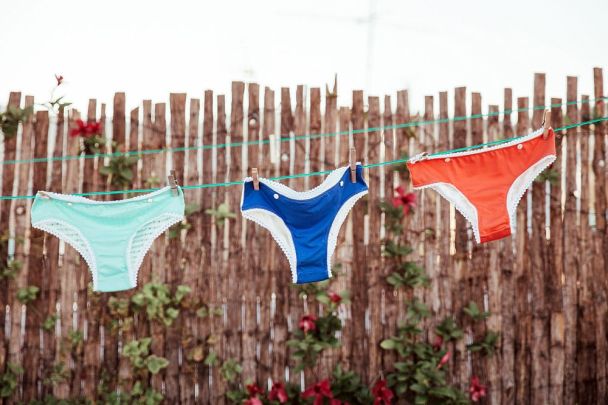In this article
Written By: Audrey Phillips, RN, BSN
Medically Reviewed By: Kim Langdon M.D, OB/GYN
Those frothy soaks might be helping you press the reset button, but make sure they don’t disturb your vaginal health
After a stressful day, a relaxing soak with dimmed lights, a good book and a cup of herbal tea is just the ticket to mentally decompress, soak away the day and press the reset button.
But while a bubble bath can be therapeutic heaven to sore muscles, aching joints or an anxious mind, they are not always as therapeutic for your vaginal health.
According to Dr. Kim Langdon (OB/GYN), “hot bubbly baths can cause skin to become dry, dehydrated, irritated, and alter the pH of this delicate area. The chemicals in bubble baths can lead to a variety of vaginal complaints, from rashes to yeast infections.”
Keeping the balance
You may be wondering if bubble baths can cause vaginal irritation or yeast infections? Although bubble baths may feel wonderful, an unwanted consequence of a regular bubbly soak is that it can irritate and upset the balance of the microorganisms that keep the vagina healthy.
This is because the ingredients, dyes and fragrances in bubble bath can throw off the normal level of pH in the vagina. A healthy vagina is on the acidic side of the pH scale. Bubble baths, however, are more alkaline, and soaking in a mildly alkaline bath can disrupt the natural balance of vaginal flora, creating an environment more susceptible to irritation or infection.
For those that are prone to vaginal infections, upsetting the pH balance can potentially lead to yeast infections and the development of vaginitis, causing your vulva or vagina to become inflamed or irritated. Dr. Langdon added, “They can also make you prone to bacterial vaginosis (BV), another type of vaginal irritation that leads to a foul odor.”
Other bath products?
It’s not just bubble baths that can disrupt the balance of your intimate health. Products such as bath salts, Epsom salts and bath bombs can also upset your vaginal health if used in large quantities or too frequently, especially for those that are susceptible to vaginal irritation.
Make sure you check labels for ingredients that can potentially cause irritation and dry out skin, for example parabens, sulfates, alcohol and even talc and glitter. Bath bombs can often be particularly misleading because they are made to look and smell luxurious, and the very ingredients that allow this can be those that are the most irritating.” You also need to avoid oils, like essential oils, in the bath water. The vagina has its own natural cleaning system,” remarked Dr. Langdon.
Do I need to give up baths?
You don’t necessarily need to give up a soak in a tub for good, but if you’re up against troublesome irritations, it may be a good idea to take a short break from baths to see if your symptoms clear up, especially baths with bubbles. If you’re going to miss the all-encompassing nature of a bubbly soak, be sure to shop for vagina friendly bubble bath products specifically made for women’s vaginal health or sensitive skin.
You could also try using baby products for a period of time, as these in their very nature are designed for delicate baby skin.
Alternatives to baths products
There are lots of benefits to taking a bath, from relaxing your mind to creating a pre-bedtime winddown ritual.
So, next time you’re craving a warm bubbly soak, don’t dismiss the idea. Instead, to keep the therapeutic effects of a scented bath, you could consider using alternative products to bubbles – candles, incense, or a diffuser for essential oils can be just as aromatic for a relaxing soak in the tub.
Keep a check on the time
Common sense would suggest shortening the length of your bath time if you’ve been experiencing bothersome symptoms. You could also consider taking a short rinse in the shower afterwards to wash off any residue that could cause irritation, especially if you’re more prone to vaginal irritation or infections, or if you have sensitive skin.











Share: